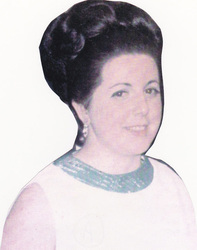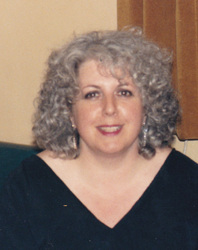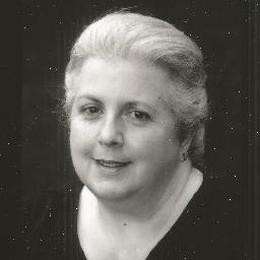Author Interview: Pelham McMahon
Teacher, author, playwright
In 2013, I had the great pleasure of hearing John Irving speak at the Queen Elizabeth Hall. It’s hard to believe that so gifted a writer is dyslexic, but Irving claimed that this condition is one of greatest gifts. Knowing that he had to work twice as hard at school as his contemporaries, he developed the discipline of checking his homework not just two or three times, but five or six. Even now, he might spend hours changing commas to a semi colons, then changing them back again. This level of detail fascinates him – and as a creative writing teacher he suggests to his students that they must learn to love this part of the process, otherwise ‘they might as well not bother.’
My guest today also overcame dyslexia to become a teacher, a theatre historian, a playwright and a novelist, and I want to discuss with her how she did so. But first, I hope you won’t mind indulging me as I share a little story.
In 2009, I started work on the book that became A Funeral for an Owl. A structural editor pointed out the flaws in my initial ‘research’ (or lack of it). While ironing out those issues, I discovered another major issue: it was thirty years since I left school and Child Protection laws had changed quite considerably. Two of my main characters were acting illegally. Here was a new angle – and a much-needed focus – for my novel!
When I was at high school, one of my teachers opened the door of her house, providing a group of wonderful misfits with a place of sanctuary and endless cups of tea, no questions asked. Whilst I can see the sense in tightening Child Protections laws, I am saddened to think that this kindness would now be illegal. I knew that teacher as Annie McMahon.
In recent months I started exchanging comments on a writing forum with an author called Annie Pelham from Liverpool (the city my partner comes from). It took us a short time to realise that we knew each other: Annie Pelham was the very teacher I had been thinking about! And now we have rediscovered each other through our mutual love of writing – and Facebook.
Annie (who publishes under the name Pelham McMahon) has lived through many traumas that are reflected in her writing, most notably her alignment to military issues through her husband (whom I also knew), father and brothers. Her latest work is a novel, written with the aim of helping women understand why so many soldiers find family life difficult after service, in comparison with friendships formed in their the military. Titled, Platinum Ten, Every Mother’s Son, Annie used what she speaks of as ‘the Beryl Bainbridge method of storytelling’. “Three or four strands plaited together, the same strands start from the top and should come out at the end.”

Click here to buy
Annie, you not only had to overcome dyslexia, you were also naturally left-handed. Your teachers were unsympathetic to any kind of non-conformity, regardless of the reason. It was your grandmother who taught you how to use your right hand. Can you tell us about that? (Text shown in italics are extracts from Annie’s memoirs.)
I started school during the Second World War. An evacuee from Essex, I began my schooling in what was then Cheshire but is now part of Greater Manchester.
“But that first day [at school] my hair beautifully plaited and beribboned and my second hand shoes polished, I looked like a new pin. We were poor but Mother always believed in us looking clean and tidy when we went out. I sat there waiting and then a chalkboard was put in front of me and a piece of chalk. I don’t even remember what I was supposed to do with that piece of chalk, what instructions I had been given, I don’t remember, because all I remember is the pain of a wooden pencil case being slammed down on my hand and the chalk flying out of my fingers and onto the floor where it broke into small pieces.
“What are you Hitler’s child”
Well, you may well wonder why it was that I was being called Hitler’s Child. It was very simple, I had the chalk in my left hand.”
My grandmother taught me to darn socks.
“Now once the mushroom is in the sock, arrange the hole over the head of the mushroom and pull it down tight, like that, yes that’s it, and then hold the stem of the mushroom with the rest of the sock pulled down and around it, just so and that is what your left hand is for, to hold your sewing. Your left hand must hold onto that stem as if your life depends on it: never let go of the mushroom.” I listened, I watched and I practiced, and within a week I had mastered the art of darning socks.
Now you may think we were an odd family having so many holes in our socks, but everyone suffered with holes in their socks in those days because there was no nylon reinforcing the heel and toe areas. Pure wool and pure cotton soon rubbed away to nothing inside our ill-fitting shoes as we ran about all day, playing, skipping, and racing through time, as we lived free from the fear of bombs in our safe house without carpets.
In learning to sew I gradually became right handed. By the end of that first term at school, I could write my name on the little slate board with the chalk held in my right hand.

When and how did you discover that you had dyslexia?
Very early, although in those days it was called ‘word blindness’. After the war, we returned to Essex and I was there for my birthday in January 1946. I missed my own party because I was put in detention for failing the spelling B. My word to spell was one where I couldn’t see the difference – Implicit or Inplicit? When you said it, the sound could go two ways and I couldn’t decide which was right. All I remember is the teacher shouting at me. , “Can’t you see it?” But I could neither write the word, nor say it. In the end she softened her voice:“Now, why are you crying?” I said, “It’s my birthday and I’m missing my party.” She looked at me and suddenly came over from her desk to mine and gave me a silver sixpence. The next day Mother was summoned to the school and told I had a problem with words. My father said it didn’t matter as I’d probably only get married and have children.
Can you relate to what John Irving had to say about dyslexia?
Yes, it is was a nightmare then – and still is in some measure. Today, thanks to the British Dyslexic Association, I understand the neurological causes of dyslexia. Being forced to be right handed was not the sole cause of my trouble. There is also the possibility of an heredity link, in my case to my father, who – like Einstein – was a mathematical genius. But I felt ashamed of my spelling, my inability to differentiate between words, my complete lack of understanding of sentence structures, the sudden blankness when the order of words I was writing disappeared. (Even if they are on the page – they still vanish.)
When I had a recent scan, the Gerontologist pointed out that my brain was fighting to overcome a faulty wiring problem. When my brother, who cares for me, pointed out that I had been born left handed and was dyslexic she said that explained a great deal.
How has dyslexia shaped your writing?
It stopped me from becoming a writer before I was ready. Years of rejection in every aspect of my writing career eventually led me to playwriting, which involved concentrating on dialogue. And, because I had lived a different life, I felt I had something to write about.

You describe your brain as being ‘cross-wired’. Is that how it feels?
Yes – both physically and emotionally. I was made to feel as if I was Educational Subnormal, which distressed me more than I can say. I was an 11+ failure and I had to sit O Level English five times.
There is a strong visual element to dyslexia. I can look at words and sentences one day and they are meaningless. Words, phrases or even whole sentences can go missing, yet I think I have written them. So, like John Irving, I have to keep going over the work. Sometime I set work aside until I can ‘see’ again. For example, on one day I wouldn’t be able to see any difference between ‘pet’ and ‘bed’. The next day I might be able write without any problem, and the spellings and sentence structures would be correct. The real nightmare is that every dyslexic is different.
I knew you as my needlework teacher, but you also taught drama. How and when did you start writing?
My mother sent me to elocution lessons soon after the teacher brought the issue about my spelling to her attention. The thinking was that, if I could pronounce words properly, I might become better at spelling them. My love affair with Drama followed. As possible I ventured onto the stage. At the age of twelve I had my first walk-on part and was hooked! Working as a needlework teacher, I absorbed ideas and methods by watching brilliant drama teachers coach passable performances from great bags of nerves.
I know that you have found certain computer software very helpful in your writing. Can you tell us about that?
My late husband gave me my first BBC computer thirty years ago. It was a model much used in schools, a considerable step up from a typewriter! I am not brilliant with a computer – I still treat it as a word processor. Although, with practice, I have acquired some skills, my eyes aren’t what they were, and dyslexia hampers my progress. Microsoft spellcheck is no good to me. I use a dictation programme called Ginger, which was originally designed for foreign language students. I wear headphones with a microphone and speak as if I am giving dictation to a secretary. Then I use a separate editing and spellcheck package.
Annie, you had a very specific goal when you turned to self-publishing, didn’t you?
Those who have seen my plays being performed or have read my work have always said it shouldn’t be lost. So at the age of seventy-five, I have set myself the challenge of publishing all my forty plays and several new novels via CreateSpace. I don’t want to feel as if I’ve wasted my life fighting this monster. My plays and novels are my legacy and triumph over a lifetime’s adversity.

The Liverpool Repertory Company at Liverpool Playhouse, 1911-1998
Click here to buy
Initially, I was published commercially, firstly on behalf of Liverpool Playhouse, then later, on the advice of another author, I signed a contract with VDU in Glasgow for e.book publishing. It was only later that I discovered I had signed my books over to a company that did no marketing. They take 60% of the profits so you know the rest. Zilch! Worst of all, they have control of my work and won’t let me publish it as paperbacks.
As for my plays, a comment once made to me by a famous playwright told me more than anything else from agents and others in publishing: “Pelham, when looking for work, we don’t expect to get your voice coming out of Liverpool.” Too posh!!! Challenged, the reply was a statement, the gist of which was, “We want new young writers, dear!” Pat on the head and don’t bother us again. So there I was: Essex girl, old and lame, whose plays had been showcased in five of Liverpool’s theatres: stuck.
Then last year, I joined ALLi and taught myself about self-publishing. My soldier book is out now and two more books are slowing coming together. Those who like my work particularly enjoy the elements of history or morality I always include. Only one unproduced play is a complete comedy farce, more Whitehall Theatre AKA Brian Rix of the 50’s/60’s, but fashions go around in circles. Who is to say that one day a group of comedians might not like to put it on? My bookshelf is now filling up and family and friends are acknowledging me as a published writer.
For those thinking about dipping their toes, how easy did you find the process of self-publishing?
My first book took three weeks to publish because I didn’t understand the jargon, but I used the email customer support when stuck. It seems silly now, but at first I didn’t understand what was meant by something as simple as ‘Your Dashboard!’ Createspace patiently talked me through. All of my queries were answered quickly and I sent a thank you using the name of the person who had replied. Eventually, after thirty-four emails, I had quite a circle of kindness coming my way.
Now I am far more organised. I have everything I need ready (the back cover blurb, the description to go with the Amazon page and the cover photo) before I set up the title and ask for an ISBN number. Once I have the number, I return to the manuscript, add the ISBN number and save it carefully before going back to the Dashboard and uploading the book. I proofread the final version on my laptop before publication. I have only been with Amazon for three months and have already received three monthly payments on the KPD and Prime Lending, a nice supplement to my pension.
Am I smiling? “If you can read and write, thank a teacher!” I thank mine. Because I can read and write and see my work housed in book covers I’ve designed myself.
Want to find out more about Annie?
Visit Annie’s website, where you can find details of all of her publications.
Or find her books on Amazon
Want to Find out more about dyslexia?
Read Sally Gardner‘s inspiring article for the Guardian.
Read Sally Gardner’s top 10 books for children with dyslexia.
Read about Robert Redford’s grandson, Dylan’s experience of dyslexia.


